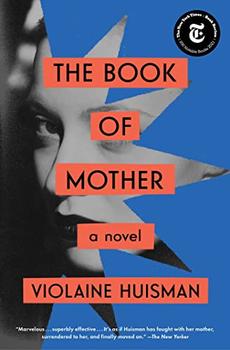Summary | Excerpt | Reviews | Beyond the Book | Read-Alikes | Genres & Themes | Author Bio

A Novel
by Violaine HuismanThis article relates to The Book of Mother
 As a concept, autofiction can seem like an oxymoron. Short for autobiographical fiction, the term was coined in the 1970s by French writer Serge Dubrovsky, and it quickly became something of a buzzword in the publishing world. This blend of two seemingly disparate forms is best described as a fictionalized account of real-life events, heavily influenced by the author's own experiences.
As a concept, autofiction can seem like an oxymoron. Short for autobiographical fiction, the term was coined in the 1970s by French writer Serge Dubrovsky, and it quickly became something of a buzzword in the publishing world. This blend of two seemingly disparate forms is best described as a fictionalized account of real-life events, heavily influenced by the author's own experiences.
While most of us are familiar with the notion of "writing about what you know," it may seem strange to some readers that an author would choose to frame their own life story as fiction, rather than simply pen a more recognizable memoir. Some have suggested that autofiction exists on a spectrum, from the heavily fictionalized to almost entirely true. This would go some way toward explaining why, despite the form's long history, it retains an air of mystique; its very definition and boundary lines continuing to blur and cause debate. Recognized examples of more specific types of autofiction include the following:
In short, autofiction presents the perfect solution for many authors who want their work to exist without the restraints of a more traditional novel or memoir. While the former may deny them the opportunity to comment explicitly on their own experiences, the latter may stifle creative flair. After all, few of us have lived a life that would adhere neatly to the structure and chronology that most readers expect from a book.
Violaine Huisman spoke eloquently of these freedoms when discussing the origins of her novel The Book of Mother with Vogue magazine. Though initially penning her mother's life story in a more straightforward manner, she revisited the manuscript with the concept of autofiction in mind: "I realized then that I had to distance myself from facts in order to give shape to my mother's story, to create a coherent narrative." She explained further: "… fiction is the imaginative power to give form to the real, to make sense of the chaotic nature of living … [It] has the ability to create logic where there is none, to give coherence and stability to the story in a way that feels very powerful and personal."
Filed under Books and Authors
![]() This "beyond the book article" relates to The Book of Mother. It originally ran in November 2021 and has been updated for the
October 2022 paperback edition.
Go to magazine.
This "beyond the book article" relates to The Book of Mother. It originally ran in November 2021 and has been updated for the
October 2022 paperback edition.
Go to magazine.
In war there are no unwounded soldiers
Click Here to find out who said this, as well as discovering other famous literary quotes!
Your guide toexceptional books
BookBrowse seeks out and recommends the best in contemporary fiction and nonfiction—books that not only engage and entertain but also deepen our understanding of ourselves and the world around us.